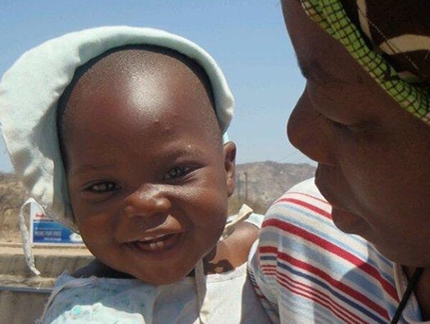
Three years ago, the Australian Government contracted the Africa Capacity Building Foundation (ACBF) to provide logistical and administrative support to the Australia Africa Community Engagement Scheme (AACES), which contributes to reducing poverty in Africa through food security, maternal and child health, and community-based interventions in water and sanitation, with particular attention to women, children and people living with disability. As Resource Facility for AACES, ACBF provides administrative and technical support to the program. This program is improving many lives on the continent.
In Zimbabwe - Mashonaland East, Masvingo and Manicaland provinces, Non-Governmental Organizations (NGOs) funded under AACES have supported the improvement in the health of more than 13,000 women and children. This was achieved through modern family planning methods, child vaccinations, and safe and clean baby delivery services. Nearly 5,000 women smallholder farmers have also improved their agricultural productivity thanks to Australian funding for fertiliser and seeds, and access to agricultural extension services. Also, more than 17,000 people accessed safe and sustainable water, appropriate sanitation and safer hygiene practices.
“NGOs supported by Australia under the AACES program have made a significant contribution to improving women’s and children’s access to clean and safe water, and health services. This has had positive impacts on children’s day-to-day activities such as going to school, and for pregnant women, it has meant safe delivery of healthy babies. We encourage them in their important work in making people’s lives better.” said H.E. Mr. Matthew Neuhaus, then Australia’s Ambassador to Zimbabwe, Zambia, Malawi and Democratic Republic of Congo.
One key actor in the program is the Community Technology Development Trust and Plan International Zimbabwe, which works with private sector healthcare clinics to provide sustainable, cost-effective sexual and reproductive health services. An increase in access to health services means women can make informed decisions on the family planning methods they want. Being able to control how many children they have saves women’s lives and gives them greater control over education for themselves and their children.
The construction of Maternal Waiting Homes has eased the burden for women, reduced maternal and neonatal deaths, transmission of HIV from mother to child and the risk of HIV transmission between those assisting and conducting deliveries. Since the first home was constructed in 2012, there has been significant reduction in the number of babies born HIV positive to 1 percent from an alarming 10 percent before the homes were built. The provincial and districts government is now rolling the Maternal Waiting Homes to other areas as a model for enhancing maternal and child health.
“The provision of a safe place to deliver has changed our lives, we no longer have to worry about walking long distances while in labour and incurring costs of going to Mutoko district hospital to deliver… the home has brought a lot of benefits such as learning which we did not think initially,” says an expectant women at Kawere Maternity Waiting Home.
At the Mongu and Kaoma districts in neighbouring Zambia, the same transformation has been observed. With funding from AACES, Oxfam who implement the AACES program in Zambia has provided close to 27,000 people access to safe and sustainable water, appropriate sanitation and safer hygiene practices.
“Australia’s support to Oxfam will help improve the health and quality of life of women, children, the elderly and people with disability in Kaoma and Mongu Districts. We want to see these communities enjoy better access to clean and safe water and sanitation services, and fewer inequalities in the impact of water and sanitation challenges on women, men, girls and boys, and vulnerable groups,” says H.E. Neuhaus.
The program has brought about positive initial outcomes by training women in construction, giving them skills to build and maintain water, sanitation and hygiene infrastructure, thereby increasing their access to income-generating opportunities. Women comprise 44 per cent of the membership of water and sanitation management committees, giving them greater voice to demand their rights and influence policy changes.
Clean, safe and adequate water was provided to more than 6,948 people through the drilling of 24 new demonstrative inclusive boreholes using low cost manual drilling technology and rehabilitation of 10 boreholes using community based enterprises. Continued mentorship and development of women owned construction companies and community-based manual drilling enterprises, ensured the successful building of infrastructure and community based enterprises, as well as increased confidence and competence.
AACES is a partnership of the Australian Government, 10 Australian Non-Governmental Organizations (NGOs) and their Africa-based partners. The $90 million program is being implemented in 11 African countries: Ethiopia, Ghana, Kenya, Malawi, Mozambique, Rwanda, South Africa, Tanzania, Uganda, Zambia and Zimbabwe.





